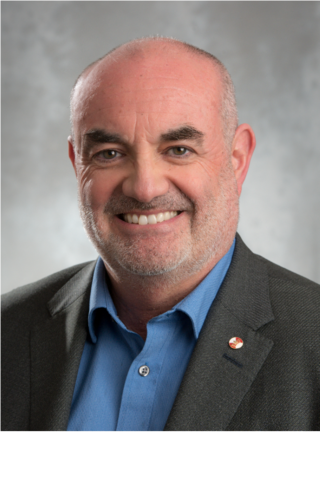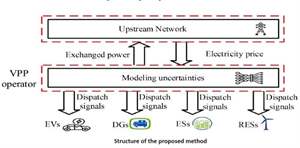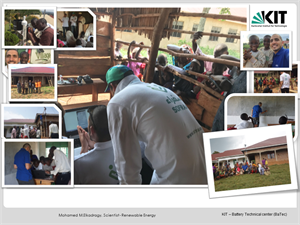News
Prof. Claudio Cañizares has been elected Fellow of the Chinese Society for Electrical Engineering (CSEE) for his outstanding contributions in the field of electrical engineering science and technology.

Prof. Claudio Cañizares has been elected Fellow of the Chinese Society for Electrical Engineering (CSEE) for his outstanding contributions in the field of electrical engineering science and technology. Founded in 1934 in Shanghai, the CSEE's members include over 120,000 individual engineers and over 1000 organizations.
Professor Cañizares is a University Professor of Electrical and computer engineering, Hydro One Endowed Chair, and the Executive Director of the Waterloo Institute for…
Research Spotlight by Prof. Sarah Burch

As climate change intensifies, the world needs to transition to clean energy. However, the pathways chosen to make that transition happen aren’t always equitable.
For example, subsidies for rooftop solar panels systematically exclude non-homeowners. Poorly planned renewable energy projects infringe on Indigenous land rights. Lower-income neighbourhoods receive less investment for things like EV charging infrastructure.
To help ensure justice is baked into the design and deployment of energy…
Prof. Claudio Cañizares (Executive Director, WISE) participated in a conference as a speaker in January 2024 at Al Majmaah University - Riyadh Region - Kingdom of Saudi Arabia.

TITLE: The role of the Waterloo Institute for Sustainable Energy (WISE) in SDGs
This presentation will provide an overview of WISE and its programs and initiatives relevant to SDGs, especially on SDG 7 regarding access to affordable, reliable, and sustainable energy. Thus, WISE work and accomplishments on sustainable…
CONTRIBUTED TO THE GLOBE AND MAIL
PUBLISHED FEBRUARY 20, 2024
JATIN NATHWANI AND ANN FITZGERALD

The time has come to bring the nuclear waste debate in from the cold and make recycled nuclear waste a centerpiece of Canada’s energy and national security strategies.
Jatin Nathwani is a professor at the University of Waterloo’s Department of Management Science and Engineering. Ann Fitzgerald is a professor of international security and the director of the Balsillie School of International Affairs.
Hill Times op ed by WISE member Prof. Jatin Nathwani.

Prof. Nathwani is a professor at the University of Waterloo’s Department of Management Science and Engineering and the former Executive Director of WISE.
Research Spotlight by Prof. Kumaraswamy Ponnambalam and Prof. Ali Elkamel

Today’s electricity system includes more and more smaller-scale sources of energy, plus more and more electric vehicles (EVs) that act as small-scale storage systems when they’re plugged in. Virtual power plants (VPPs) help manage all those “distributed energy resources” by pooling them into larger packages that can be included in day-ahead electricity markets.
In those markets, participants buy and sell electricity at binding prices for the following day. But making accurate bids can be…
In keeping with the ‘Innovation Lab’ framework of the Waterloo Institute for Sustainable Energy, participants from the University of Waterloo and the Indian Institute of Technology Delhi were selected for an event focused on sustainability topics. The event's goal during a global pandemic is to establish connections between students and institutions, and to encourage students to use their skills and work together to address a sustainability issue impacting both countries.

The event commenced with a warm exchange between Prof. Ian Rowlands, Associate Vice-President International at the University of Waterloo, and Prof. Naveen Garg, Dean of International Programmes, IIT Delhi. It was followed by a series of student presentations; stories about themselves, their universities, and the history and culture shared by India and Canada. The students also expressed their motivation behind their participation and engaged in deep conversations to understand each other's…
Over 1 billion people do not have access to clean and affordable energy. This means that medical clinics are often dark at night when crucial medical work has to be done, cooking fuels create indoor air pollution (a larger killer than malaria and AIDS combined), children have difficulty studying after dark, and an incredible amount of time and money is spent collecting meager energy sources such as wood or kerosene.
 To combat global energy poverty, Dr. Jatin Nathwani from the Waterloo Institute for Sustainable Energy (WISE) and Dr. Joachim Knebel from the Karlsruhe Institute of Technology (KIT) in Germany set up Affordable Energy for Humanity, a global change initiative comprising over 50 energy access institutions from 30 countries around the world. Since AE4H’s inception in 2015, its members have been collaborating to innovate and test aspects of solutions to energy poverty.
To combat global energy poverty, Dr. Jatin Nathwani from the Waterloo Institute for Sustainable Energy (WISE) and Dr. Joachim Knebel from the Karlsruhe Institute of Technology (KIT) in Germany set up Affordable Energy for Humanity, a global change initiative comprising over 50 energy access institutions from 30 countries around the world. Since AE4H’s inception in 2015, its members have been collaborating to innovate and test aspects of solutions to energy poverty.
The ‘Off-grid and…
WISE Energy Day 2019 features panels that discuss current and emerging themes in the sustainable energy sector and beyond!
Panel 1 – Energy Services Delivery: Is there a changing of the guard?
The emergence of renewable energy technologies offers numerous development opportunities to both on and off-grid communities across Canada. The transition to sustainable energy future requires substantial efforts in developing, evaluating and advancing technical innovations and identifying and applying effective implementation strategies for those new technologies. It is not only a technological concern that carries the…
3rd international conference for on solar technologies and hybrid minigrids to improve energy access' is happening this Spring 2020.

The third International Conference on Solar Technologies and Hybrid Mini-Grids to improve energy access, at the Unversitat de les Illes Balears in Palma, Spain is on April 1-3, 2020.
Deadline Call for Papers: October, 7 2019
The main objective of the conference is to provide an opportunity for an exchange between practitioners from the industry, academia and development institutions working in the field of decentralized energy. The conference will cover technical, business and management aspects…
This add button hasn't been set up yet.
Channels
- AE4H Blog(0)
- AE4H Blogs(0)
- AE4H News(8)
- |
- Commentary(14)
- Member Blog(6)
- News & Updates(294)
- Research Spotlight(114)
- Union Gas(0)
- Updates(9)
- Workshop(2)
- More
Page Options
.png?width=900)

